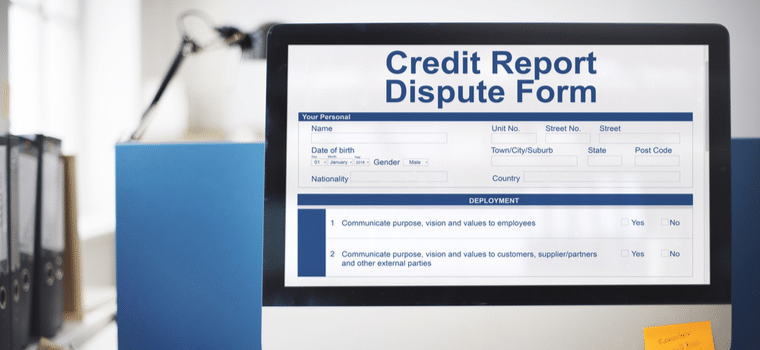If you’re considering disputing an item on your credit report, there’s a good chance you’re wondering whether the dispute will negatively impact your credit score. If this is the case, you’re not alone. According to an FTC study, 20% of consumers have errors on their credit reports that could affect their credit scores. The good news is that the act of disputing an item on your credit report will not hurt your credit score.
Why Would You Dispute an Item on Your Credit Report?
There are a handful of different reasons why you might need to dispute an item on your credit report which may include:
- Your personal information, such as your name, address, or employment is incorrect.
- There are inaccuracies regarding your payment history.
- There are accounts opened in your name that don’t actually belong to you.
- Incorrect information about bankruptcy.
What Happens to the Items in Dispute?
When you notice a mistake on your credit report, you’ll need to contact the credit reporting agency in writing, by phone or online to notify them of the error.
Once the dispute is filed, the agency will note the dispute by marking the disputed item with the code “XB”. The XB code has a different effect depending on the credit scoring model. For example, when an XB code is present on VantageScore, it excludes the entire account in dispute from the model that calculates your score. Others, like FICO, only exclude the disputed information. Because of this, you might see a temporary change in your credit score while the item is in dispute.
Dispute Results and Long-Term Effects
After an investigation is complete, the credit reporting agency must give you a written copy of the outcome and a new copy of your credit report if changes were made. Generally, it takes about 30 days for the investigation to be completed. The outcomes you’ll see can be:
- Added – The information was added to your report.
- Updated – The information was updated.
- Deleted – The disputed item was removed from your report.
- Processed – The disputed information was deleted or updated.
- Remains – The investigation showed that the disputed information was correct, so it was not removed or updated.
Once the information on your credit report changes, you may see your score change. Disputing your personal information, such as your name or address won’t affect your score, but it’s still important to keep them accurate and up-to-date since the information could affect your ability to open a new line of credit, secure a mortgage, rent an apartment, or even get a new job.
What If You Disagree with the Result?
If you don’t agree with the results of your dispute, you have a couple of options available. The first is to make contact with the creditor, lender, or collections agency that reported the inaccurate information to the credit bureau. You can also add a statement of dispute directly to your credit report which will be visible to any lenders or creditors who access your credit report.
Are There Any Downsides to Disputing an Item?
If you’re applying for a loan or mortgage, your progress could be set back by filing a dispute. This is because many lenders won’t approve an application until the dispute is resolved. Otherwise, it’s entirely dependent on the outcome of your dispute. A successful dispute of delinquency can have a positive effect, but if the delinquency stands then it will remain on your report. Otherwise, only time will remove negative items. Most negative information will remain on your report for seven years, while some bankruptcy information can remain for up to 10 years.
In Closing
It’s important to review your credit report regularly for inaccuracies that might be hurting your credit score. It’s well worth your time to ensure that everything is accurate, especially if you’re planning on applying for a loan, mortgage, or credit card now, or in the future.




